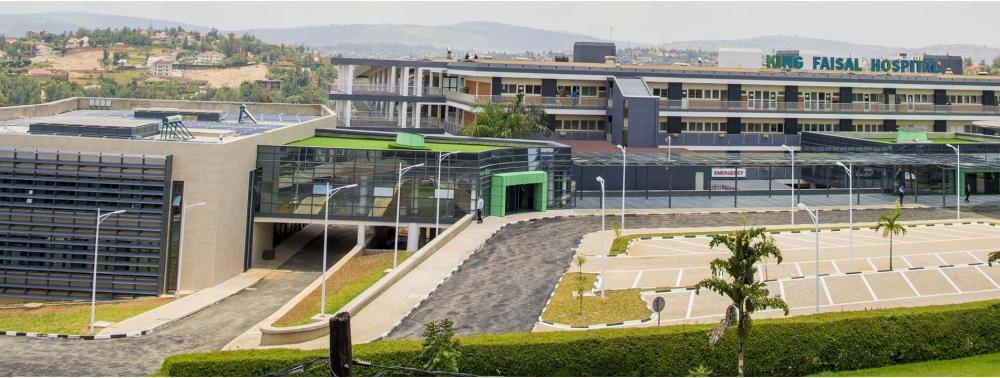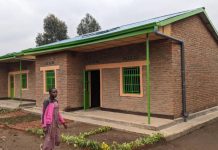Africa-Press – Rwanda. Rwanda has embarked on a transformative journey to achieve universal healthcare through innovation and strategic planning. A key player in this mission is King Faisal Hospital Rwanda (KFHR), the largest multi-speciality referral hospital in the country, serving over 300,000 people annually.
As a top-of-the-pyramid referral hospital, KFHR is dedicated to achieving global healthcare standards, including an optimal doctor-to-patient ratio and reduced patient waiting times. The hospital has used technology to streamline operations and further improve service quality.
Before 2024, KFHR operated with separate IT software systems and paper-based processes. The absence of an integrated scheduling system occasionally led to overlapping appointments, while manual insurance verification and payment processing contributed to extended waiting times. Additionally, the need for coordination across departments such as radiology, laboratory, and pharmacy sometimes led to delays in accessing diagnostic results and medications, and improving queue management transparency was also a priority.
In response to these challenges, the Government of Rwanda, through a collaboration led by the Ministry of Health and the Ministry of ICT and Innovation has initiated the conceptualisation and implementation of the Integrated Health Management Information System (IHMIS) at KFHR, designed to eliminate silos by integrating all hospital departments onto a single platform for seamless communication and coordination. The IHMIS is a robust, fully integrated platform that includes key modules such as the Laboratory Information System, Radiology Information System, Picture Archiving and Communication System, and a patient portal.
Designed to support a 100 per cent paperless environment, the system features world-class security (firewalls, antivirus, and malware protection) and enables seamless integration across all departments within the hospital. With open APIs and connectivity to external systems, the IHMIS is built around a patient-centric design. The project also leveraged a strategic partnership between the Tony Blair Institute for Global Change (TBI) and the Ministry of ICT and Innovation; TBI helped develop the strategic framework for the project’s delivery, conducted a comprehensive needs assessment for the system, and built the capacities of the Chief Digital Office at KFRH to manage the project rollout.
IHMIS enhances patient engagement by providing features such as SMS notifications for appointments and test results, keeping patients informed. It also streamlines processes by automating registration, integrated with the National Identification Agency, to minimise human error and reduce registration time, while also streamlining insurance verification and payment processing, thereby reducing waiting times.
Additionally, it integrates all radiology modalities, such as Magnetic Resonance Imaging, computed tomography scan, and laboratory analysers to enhance accuracy, reduce errors, and ensure faster turnaround times, ultimately improving efficiency and patient care. The system is also integrated with Picture Archiving and Communication System to ensure that patients have a single, unified medical record, optimising patient data management, insurance verification, and payment processing for reduced waiting times and administrative burdens. IHMIs also optimises resource utilisation by enabling real-time access to diagnostic results and patient records, improving decision-making and care delivery.
First-hand experiences: Voices from patients, hospital staff
The new IHMIS implementation is a game-changer in patient care and hospital efficiency. By digitising key processes such as registration, medical notes, results and prescriptions, billing, invoicing, and service coordination, the system has reduced waiting times, improved communication, and enhanced overall patient experience.
For Jacky Nyakayiro, a patient admitted to the medical ward, the impact of IHMIS was immediate. “The registration process took just five minutes, and I was able to complete my payment conveniently via MTN MoMo,” she shared. Insurance verification was swift, and the laboratory process ran smoothly, with invoices generated instantly and test results notified via SMS. The system has made everything much more efficient and time-saving.”
Innocent Bizoza, who visited the Accident and Emergency Department, praised the paperwork reduction. “Cashless payments, e-prescriptions, and automated billing have made the process seamless. The improved communication through SMS notifications ensures I am always updated, making time management much easier,” he noted.
The hospital leadership also highlighted the system’s impact. The Director of Nursing and Midwifery at KFHR emphasised how IHMIS had revolutionised clinical workflows. “The shift from the previous system has fully digitised our processes, significantly improving efficiency, reducing costs, and ultimately enhancing patient care,” she stated.
A key improvement has been in billing and invoicing. Invoices are now generated instantly, ensuring a smoother experience for both patients and staff. Service billing and direct payments have also eliminated delays. With these advancements, KFHR continues to position itself as a leader in digital healthcare transformation, reaffirming its commitment to delivering world-class medical services through innovation.
A vision for the future
KFHR’s digital transformation aligns with Rwanda’s broader national objectives, including the second National Transformation Strategy and Vision 2050, which emphasise innovation and efficiency in healthcare delivery. The hospital’s experience offers a scalable model for other institutions in the region, demonstrating the power of collaboration between government agencies, international partners, and technology providers.
Looking ahead, KFHR aims to further enhance its capabilities by integrating artificial intelligence tools for predictive analytics, expanding telemedicine services, and strengthening its role in medical education. Partnerships with strategic partners such as the Tony Blair Institute (TBI) will be instrumental in realizing these ambitions.
King Faisal Hospital Rwanda is a testament to the potential of digital innovation in overcoming systemic healthcare challenges. By embracing IHIMS, the hospital has set a new standard for patient-centred care and operational excellence. As Rwanda continues to advance towards universal healthcare, KFHR’s journey serves as an inspiring blueprint for leveraging technology to revolutionise healthcare delivery, not just in Rwanda but across Africa.
This article was co-authored by Jean-Bosco Ndushabandi, Chief Digital Officer-KFHR; Edel Munee Ndunge, Head of Marketing, Communications & Public Relations-KFHR; Patrick M. Karanja, Senior Head of Tech-TBI; Claudel Sebaganwa, Manager, eHealth-TBI; and Calvin Ganza, Associate-TBI.
For More News And Analysis About Rwanda Follow Africa-Press






